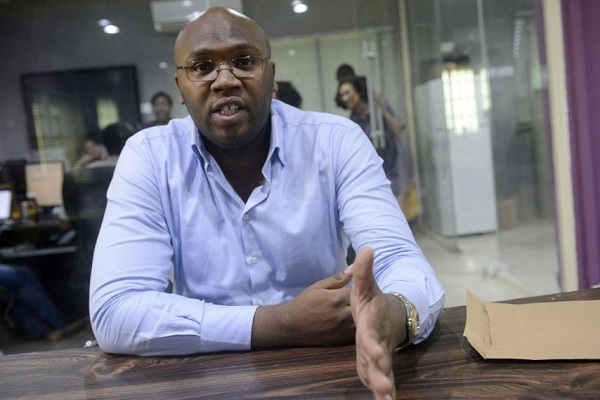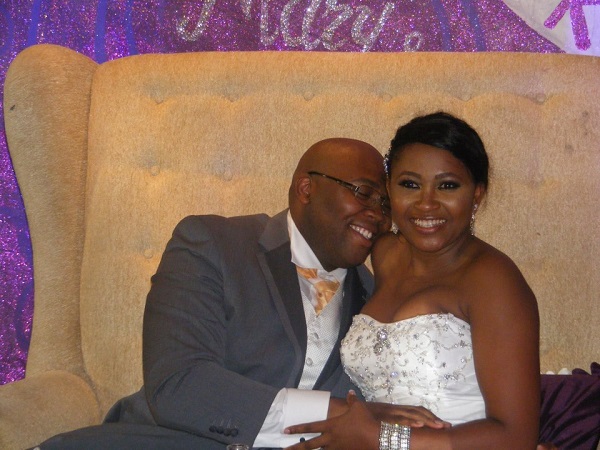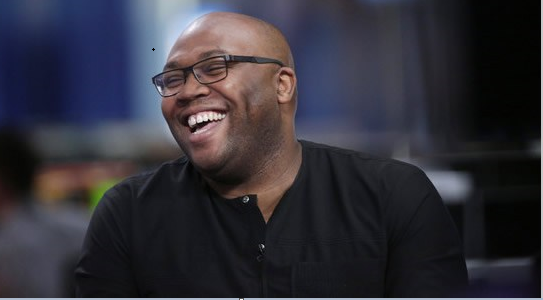After a couple of ill-fated business ventures, Jason Njoku struck gold with iROKOtv, a web platform that provides paid-for Nigerian films on-demand.
Since iROKOtv launched, it has grown in leaps and has birthed new businesses, one of which is the successful production house ROK, which is headed by his wife, Mary Remmy Njoku, a Nollywood actress and producer.
Together, the couple has been steadily building a Nollywood empire and breaking down barriers while at it.
In this interview with TheCable Lifestyle, Njoku speaks about the growth and success of iROKOtv/ROK as well issues bordering on the Nigerian film industry.
iROKO in December marked five years – what has kept you growing steadily?
I think it’s the fact that we’ve continued to listen to our customers to find out what works best for them, on every aspect of iROKOtv – what content they love, what stars they want to see, how much they can afford, how they interact with iROKOtv, and so forth. As a movie platform, we’ve evolved with our customers which has seen our subscriber numbers grow, most notably in Nigeria.
The success of ROK has been remarkable since inception, what would you attribute to that?
The content. Especially original TV series. ROK has single-handedly reinvented TV series in Nigeria, by bringing Nollywood production values and headline stars to a format which was a little tired. We’ve invested time and money in developing strong storylines, great scripts, equipment that brings a really professional feel to what we produce. We have also worked with some of the industry’s most respected creative talent [producers, script writers, directors] as well as brought on some genuinely exciting new talent.
Many have said the quality of the content (acting) on ROK can be better. Do you agree – and what steps are being taken to get this done?
I’d be interested to hear who ‘the many’ you mention actually are. Our fans love our content, as do our partners across Africa and around the world, who we sell ROK content too. In fact, one of the main issues we have is really keeping supply up with demand. We still have people crying for another season of Festac Town, which was our first full production, because they love it so much. So to the naysayers, obviously we are always making strides to improve all aspects of our business, however I’m more inclined to listen to, and keep building for our fans who love what we do, and tell us as much.

After starting a number of failed businesses, what kept you going until you struck gold with iROKO?
I had no idea Iroko was going to succeed – five years ago, it could simply have been another failed venture in the Njoku back catalogue.
Humour us: peradventure you had failed with iROKO, what would you have done next?
Who knows? I never once saw myself working for ‘the man’. It would 100% have been something to do with the internet, of that I’m sure.
At the moment, where’s your largest subscriber base from?
It remains the US, but we believe Nigeria will overtake very soon – since we launched the download functionality and adjusted irokotv pricing, we have seen massive growth here.
TheCable Lifestyle recently interviewed Mary Njoku, and she said you both work as a team. Could you walk us through how husband and wife can function effectively while building a successful empire?
Supporting each other’s dreams is a crucial aspect to building a successful business together. Mary has a deep understanding of the workings of Nollywood – she has worked her way up the industry from an aspiring actress to a heavyweight producer and film studio head. She has been integral to all the main business decisions and overall vision of Iroko, and that has been a critical part of our growth. My focus has been more on building the business around her Nollywood networks, and, more recently, around her creative content through her work with ROK. We have different skill sets, and together they complement one another.

The Jason Njoku we know is constantly looking for new walls to knock down. What’s currently up your sleeve?
I’m still an active investor in a number of Nigerian start-ups through Spark – so I keep my eye on the tech and start-up scene. But for the time being, Iroko continues to be my primary focus – building out our audience and customer base in Africa and scaling the company across a number of platforms, including more content production and TV.
A school of thought believes that cooking too many soups may affect them in little ways. Do you agree?
No – I personally think you have to diversify your portfolio, especially in these tough economic times. I also like the messiness of start-up life, so I set up Spark and started investing in other start-ups when Iroko was in a stable place – I had teams in place to assist me in running the day-to-day operations of the company, which allowed me a little time to work with and invest in other entrepreneurs and start-ups that I came across. I was able to identify the challenges that other start-ups in Nigeria have to go through, having been through them myself, and could, therefore, apply my experience and invest / support in entrepreneurs who I thought had a great opportunity to build big for Nigeria.
Do you believe brand ambassadors actually push a brand? What’s your take on this?
Yes, in many ways, because they can use their fame and, especially these days, social media presence to help.
London appears to be your comfort zone. Why, as opposed to Lagos?
I was born in London and grew up there, except for a few short years when I schooled in Nigeria. Is it my ‘comfort zone’? No, not really – I spend time here for work and business, when necessary, but I live in Lagos and my comfort zone is, and always will be, where my wife and children are.
You are quite opinionated. Is there any issue you would shy away from talking about?
I try not to get too heavily involved in politics. My opinions that I air in public on my blog are almost exclusively linked to matters that affect me, and those around me, most – business, general day-to-day life in Nigeria, Nollywood.

The Nigerian movie industry has made giant strides of late – but many don’t make enough money. Why, and in your opinion, what could be done to change this?
What’s enough money? Nollywood producers are making more money now than they ever have done before – especially the good ones, as they can sell online licences of their movies to the likes of iRoko TV and generate an additional revenue stream to movie releases and DVD sales. Before, if their content was online, it was more than likely done so illegally by pirates and they wouldn’t have received even N50.
The savvy producers have been using their new found revenue streams and reinvesting their profits in better equipment, script editors, more elaborate locations, aerial shots – and the quality of content is improving. How can they improve their profit margins? They need to be vigilant against pirates, they obviously also need to not overspend on production budgets, and they need to produce quality content that gets picked up across a number of platforms.
But don’t forget – the economy is affecting everyone, and producers are, like many of us, at the mercy of the market. As the naira has devalued, we have all seen profits squeezed.
The old and new Nollywood debate has been raging for a minute. What’s your take on it?
Movie industries have to change to meet consumer demands. So in that respect, Nollywood is Nollywood – themes, storylines, actors change and reflect what’s going on in society at that time in place. Let them have their debates surrounding new versus old. For me, there’s a massive enough market for fans of the newer Nollywood style, as well as the more village and traditional movies. In fact, on Star Times, we have a whole channel called IROKO 2, dedicated to traditional, rural Nollywood movies. Such is the demand for them.
Who are your major influences in life?
I read a lot of books by entrepreneurs – too many to name – but in business terms, I’m influenced heavily by them and their stories. My wife is an inspiration – how she manages to excel in her career, knocking down barriers every day as well as build a great home for our growing family, I find that completely inspiring.
How’s your fitfam routine panning out?
Since I’ve been in London for a couple of months, I’ve taken up cycling and have, as with most things I take on, become pretty obsessed with it. It gives me time to think about things, as well as help with my overall fitness. When I’m in Lagos, I tend to swim a lot.
What’s your favourite part of the day and what makes you get up every day?
Family. When my children were much younger, I was living on a plane, travelling across so many time zones – I missed them, and Mrs. Njoku, very much. I travel a lot less now, so I would say my favourite time of day is when I get home from work and I hear what they’ve done at nursery, we play and laugh and have dinner together – just usual routine things that I missed when I was on the road.
Copyright 2025 TheCable. All rights reserved. This material, and other digital content on this website, may not be reproduced, published, broadcast, rewritten or redistributed in whole or in part without prior express written permission from TheCable.
Follow us on twitter @Thecablestyle


I want to know your service… If someone want to bring local Nigeria movie to your channel